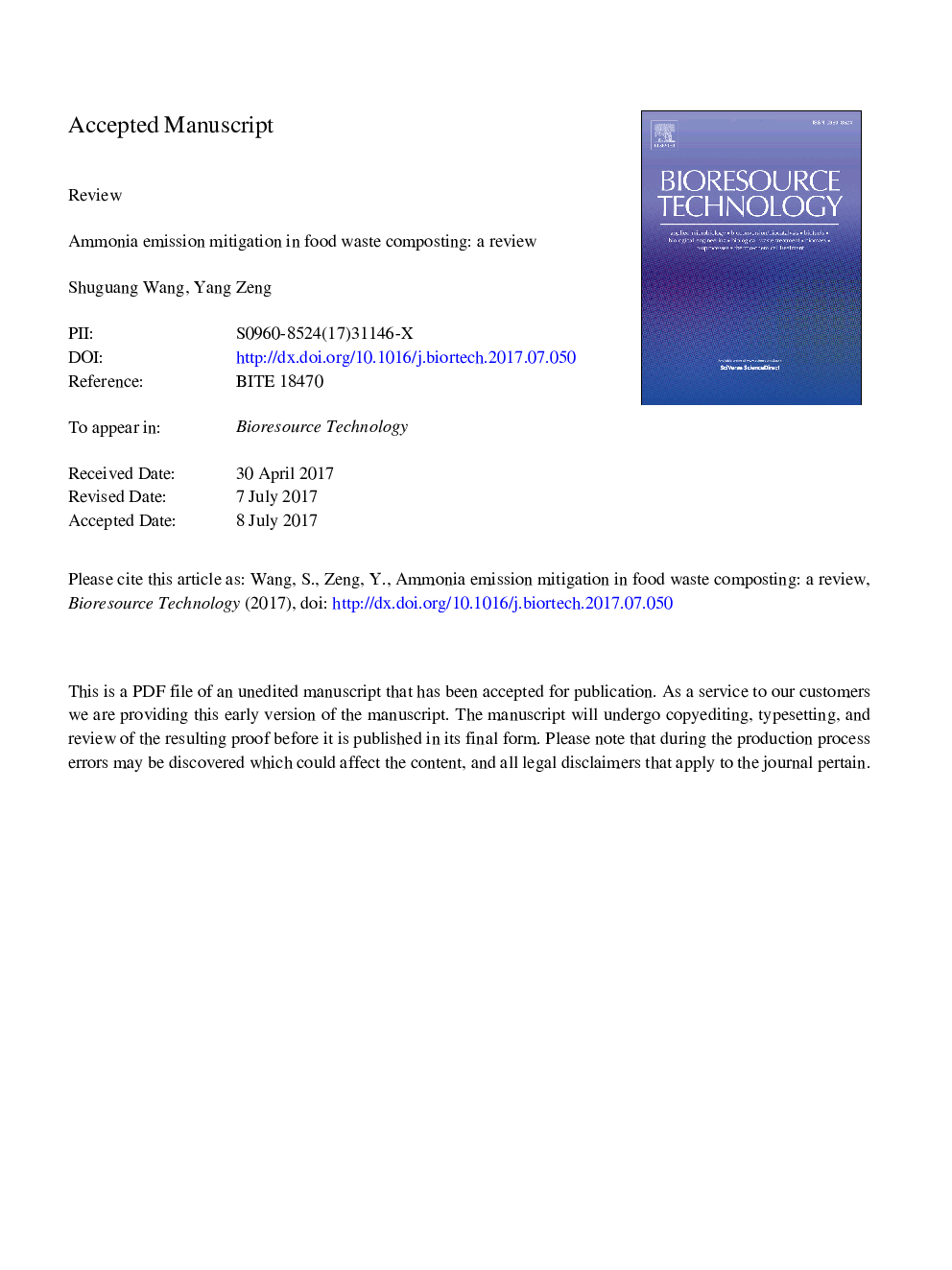| Article ID | Journal | Published Year | Pages | File Type |
|---|---|---|---|---|
| 7069093 | Bioresource Technology | 2018 | 23 Pages |
Abstract
Composting is a reliable technology to treat food waste (FW) and produce high quality compost. The ammonia (NH3) emission accounts for the largest nitrogen loss and leads to various environmental impacts. This review introduced the recent progresses on NH3 mitigation in FW composting. The basic characteristics of FW from various sources were given. Seven NH3 emission strategies proven effective in the literature were presented. The links between these strategies and the mechanisms of NH3 production were addressed. Application of hydrothermally treated C rich substrates, biochar or struvite salts had a broad prospect in FW composting if these strategies were proven cost-effective enough. Regulation of nitrogen assimilation and nitrification using biological additive had the potential to achieve NH3 mitigation but the existing evidence was not enough. In the end, the future prospects highlighted four research topics that needed further investigation to improve NH3 mitigation and nitrogen conservation in FW composting.
Related Topics
Physical Sciences and Engineering
Chemical Engineering
Process Chemistry and Technology
Authors
Shuguang Wang, Yang Zeng,
